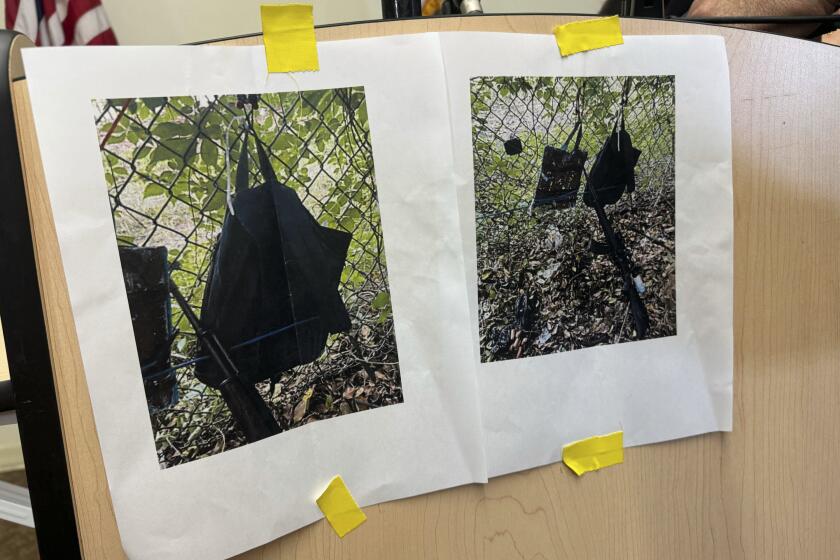New sheriff in town? Not often in L.A. County
Here they go again.
The man L.A. County Sheriff Lee Baca pushed out is pushing back. In my colleague Robert Faturechi’s exclusive interview, Paul Tanaka, the former undersheriff who has himself been accused of fostering jailhouse abuse, now says his ex-boss runs a department that is a “house of cards that’s on the verge of crumbling.”
Baca, according to Tanaka, urged underlings to hire friends and relatives, and put public safety on the line to settle political scores, including a demand to pull his deputies out of a joint operation with the FBI because the federal agency was investigating county jails.
Tanaka, the story also points out, is considering running against Baca next year.
(A Baca spokesman had this to say: “The sheriff finds it very sad that his former undersheriff has raised these false charges motivated apparently by his personal disappointment and ambition. None of these allegations were made while he served as undersheriff. He raises them only now as he contemplates a run for sheriff.”)
The charges are new, but the pattern is old.
Los Angeles County elects its sheriffs, and without term limits; it has had, since 1921, only five. Five, in 92 years. One quit to go to Congress and the other died just before election day, or their terms might have been even longer.
Compare that grip on the job to the 25 sheriffs that L.A. County had in the first 70 years the job existed.
Most of these five sheriffs were reelected handily, without even a runoff. Then, the succession, which used to look feudal, like an inside torch-passing to an anointed heir, came to look equally medieval, like the stories of kings whose sons or protégés challenge their elders and mentors.
Eugene Biscailuz, the colorful and innovative sheriff and a seminal head of the CHP, was the grandson of the city of L.A.’s first full-time paid lawman, who was shot dead by a fellow officer.
In 1932, Biscailuz was the handpicked successor of Sheriff William Traeger, who left to go to Congress after 11 years on the job. A quarter-century later, in 1958, the retiring Biscailuz virtually bestowed the sheriff’s job on a deputy, Peter Pitchess. And Pitchess, contemplating retirement in 1982, endorsed one of his deputies, Sherman Block, which put Block in the catbird seat with voters.
But Pitchess didn’t like the way Block did things, and the two feuded -- it was so nasty that when Deputy Lee Baca decided to challenge his boss, Block, for the job, Pitchess backed him.
Block, who had never even been forced into a runoff, now found himself in one against his onetime underling, Baca. Block died less than two weeks before the election but still got about a third of the vote -- maybe as a protest by anti-Baca voters, maybe because of the incumbent’s grip on the job.
The sheriff, like the district attorney, also battles on a second front. Not only are there challengers within the ranks, but there’s the Board of Supervisors, also elected, which holds the sheriff’s purse strings.
Pitchess battled with Supervisor Frank Bonelli in the 1960s over hiring issues, and a decade later let loose on another supervisor, Baxter Ward, after an investigation accused Pitchess of favoring celebs and friends with favors like special security devices. Pitchess raged about the “three-ring circus” and “a typical witch-hunt.” The information that began that investigation? Supplied by a onetime department employee.
It all sounds wearyingly familiar, a pattern that raises the question of whether anyone holding this job has a natural shelf life, a sell-by date, and if so, is it a date that voters are even looking for?
ALSO:
Slap a fee on carry-out bags
Endorsements: May 21 election
More to Read
A cure for the common opinion
Get thought-provoking perspectives with our weekly newsletter.
You may occasionally receive promotional content from the Los Angeles Times.











